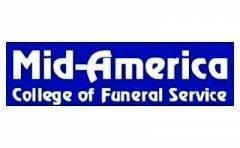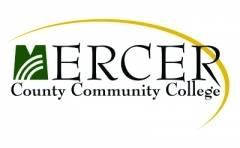Best Mortuary Science colleges in the U.S.
Best Mortuary Science colleges in the U.S. for 2025
Cincinnati College of Mortuary Science offers 2 Mortuary Science degree programs. It's a very small, private not-for-profit, four-year university in a large suburb. In 2022, 49 Mortuary Science students graduated with students earning 44 Bachelor's degrees, and 5 Associate's degrees.
Commonwealth Institute of Funeral Service offers 2 Mortuary Science degree programs. It's a very small, private not-for-profit, two-year college in a large city. In 2022, 192 Mortuary Science students graduated with students earning 146 Associate's degrees, and 46 Certificates.


Jefferson State Community College offers 3 Mortuary Science degree programs. It's a medium sized, public, two-year college in a midsize city. In 2022, 88 Mortuary Science students graduated with students earning 66 Certificates, and 22 Associate's degrees.
American Academy McAllister Institute of Funeral Service offers 1 Mortuary Science degree programs. It's a very small, private not-for-profit, two-year college in a large city. In 2022, 76 Mortuary Science students graduated with students earning 76 Associate's degrees.
Worsham College of Mortuary Science offers 2 Mortuary Science degree programs. It's a very small, private for-profit, two-year college in a large suburb. In 2022, 100 Mortuary Science students graduated with students earning 55 Associate's degrees, and 45 Certificates.
Dallas Institute of Funeral Service offers 4 Mortuary Science degree programs. It's a very small, private not-for-profit, two-year college in a large city. In 2022, 111 Mortuary Science students graduated with students earning 62 Associate's degrees, and 49 Certificates.
Pittsburgh Institute of Mortuary Science Inc offers 3 Mortuary Science degree programs. It's a very small, private not-for-profit, two-year college in a large city. In 2022, 95 Mortuary Science students graduated with students earning 81 Associate's degrees, and 14 Certificates.
Mid-America College of Funerary Service specializes in mortuary science and is a great place for students that want an education tailored to their needs. This school offers bachelor’s and associate degrees that range from two to four years. These programs impart tangible skills that students can put to use in apprenticeship roles after they graduate.
San Antonio College offers 4 Mortuary Science degree programs. It's a large, public, four-year university in a large city. In 2022, 24 Mortuary Science students graduated with students earning 16 Associate's degrees, and 8 Certificates.
Mercer County Community College offers 3 Mortuary Science degree programs. It's a medium sized, public, two-year college in a outlying rural area. In 2022, 99 Mortuary Science students graduated with students earning 52 Certificates, and 47 Associate's degrees.
Top schools offering Mortuary Science degrees in the U.S.
What is Mortuary Science?
Mortuary science is the study of deceased bodies, and the preparation methods needed for funeral services and burial. Schools that offer programs in mortuary science often require hands-on lab instruction to familiarize students with the processes that are needed to ensure a successful funeral.
Graduates with this degree often work for funeral homes and may hold roles as a funeral director or embalmer to prepare bodies for display during a funeral. Human bodies undergo a series of physical and chemical changes after death, and it is the job of the mortician to ensure that the deceased are cared for and transported properly after they are delivered to the funeral home.
Mortuary Science Degree Overview
A degree in mortuary science is the first step for those interested in working with cadavers to prepare them for funerary services. These programs often involve anatomy and physiology classes to familiarize students with bodily processes after death and will typically include hands-on instruction with a certified mortician in a lab setting.
Unlike many other medical professions, getting a degree in mortuary science doesn’t involve pursuing medical school. These programs can range from certificate-level programs to bachelor’s degrees with more theoretical classroom instruction and hands-on lab time. Beyond the scientific processes, students often take courses in grief counseling and funeral preparation to learn how to work with family members and loved ones in these sensitive situations.
Certificate in Mortuary Science
For students that want to acquire relevant certificates or licensure in the sector, a Funeral Director certificate is a great way to promote a solid foundation in mortuary science.
Associate Degree in Mortuary Science
There are a range of options for prospective applicants entering the field of mortuary science. For those looking to expedite their time to a full-time role, an associate degree is an excellent way to further your knowledge of funeral direction and embalming techniques. These programs last up to two years and often are paired with certification and licensure exams.
Bachelor's Degree in Mortuary Science
Many students that desire traditional, bachelor’s level programs can apply to mortuary science degree programs that take up to four years to complete. These programs typically include general education requirements such as chemistry and anatomy. While these programs may take longer to complete, they do impart relevant skills needed to enter this sector with a strong application.
Master's Degree in Mortuary Science
Master’s and doctorate level degree programs in the field of mortuary science are less common than the shorter associate and bachelor’s level coursework, though some students interested in furthering their knowledge and gaining more experience in an academic setting elect to pursue these tracks.
What Can I Do with a Degree in Mortuary Science?
Students entering the mortuary science profession can explore a range of jobs at funeral homes, in police morgues, and as mortuary technicians. While funeral directors hold public-facing roles, many mortuary science graduates will work in hands-on lab settings with the deceased. According to the Bureau of Labor and Statistics, Morticians and Undertakers can earn up to $56,000 annually, while Funeral Service Workers make up to $58,000.
Earning an Online Mortuary Science Degree
Given the tactile nature of this profession, students often pursue in-person mortuary science programs so that they can acquire the skills they need to operate as a mortician or funeral director after graduation.
While online programs can impart the theoretical aspects of this specialization, it is common for students to take in-person licensure exams to demonstrate their understanding of the human anatomy and embalming.
Mortuary Science FAQ
List of all Mortuary Science colleges in the U.S.
| School | Average Tuition | Student Teacher Ratio | Enrolled Students | |
|---|---|---|---|---|

|
Cincinnati College of Mortuary Science Cincinnati, OH | 17 : 1 | 101 | |

|
Commonwealth Institute of Funeral Service Houston, TX | 138 : 1 | 275 | |

|
Jefferson State Community College Birmingham, AL | 65 : 1 | 8,431 | |

|
American Academy McAllister Institute of Funeral Service New York, NY | 96 : 1 | 382 | |

|
Worsham College of Mortuary Science Wheeling, IL | 95 : 1 | 190 | |










